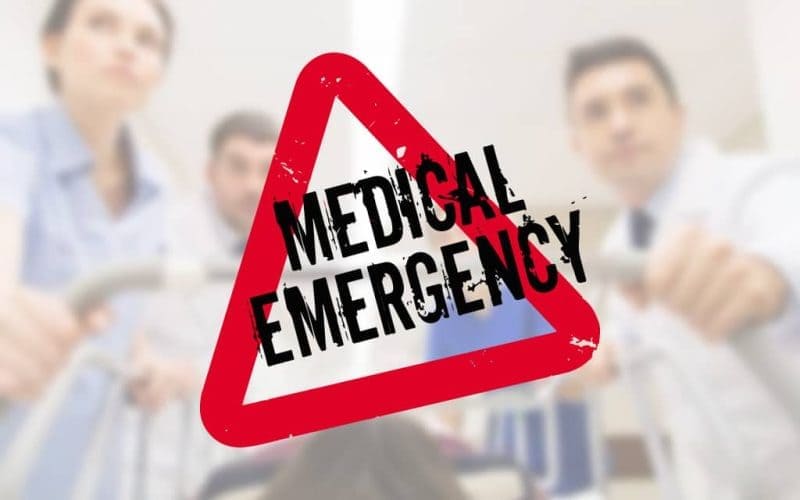When emergencies strike, time becomes the most critical factor, and decisions need to be made instantly to save lives. A recent ruling by the Delhi High Court has sent a strong message about the importance of prioritizing life over bureaucratic hurdles, ensuring that employees in emergencies receive the medical reimbursements they are entitled to, irrespective of hospital affiliations.
This decision stems from a significant case involving Seema Mehta, a dedicated school employee who suffered a life-altering accident. The court’s judgment not only highlights the principles of justice and fairness but also highlights the need for a more compassionate approach to healthcare policies.
Seema Mehta, who had been working as an employee of an aided school since 2000, faced a severe accident on September 18, 2013. The incident left her with critical head injuries, requiring immediate medical intervention. Initially rushed to Guru Tegh Bahadur Hospital, her condition demanded specialized care, leading to her transfer to Sir Ganga Ram Hospital.
At Sir Ganga Ram Hospital, she underwent a major brain surgery and received prolonged treatment, battling for her recovery. After months of hospitalization, Mehta was finally discharged in January 2014 and declared fit to return to work in March of the same year.
However, her journey to recovery came at a significant financial cost i.e. ₹5.85 lakh in medical expenses. Seeking reimbursement for these expenses from the Directorate of Education (DoE) and her school, she was met with rejection. The reason? Sir Ganga Ram Hospital was not listed under the Central Government Health Scheme (CGHS) empanelled hospitals.
Determined to fight the injustice, Mehta brought her case to the Delhi High Court. The matter was heard by Justice Jyoti Singh, who reviewed the circumstances in detail.
The court emphasized that emergencies often leave no room for prior approvals or adherence to rigid guidelines. In life-threatening situations, the immediate priority is the survival of the patient, not bureaucratic compliance.
Justice Singh observed that Seema Mehta’s case was a clear example of an emergency, with her severe head injury and need for urgent brain surgery being matters of life and death. Denying her reimbursement under such dire circumstances was deemed unfair and unjust.
The court also took into account the authenticity of the emergency certificate issued by Sir Ganga Ram Hospital, which validated the necessity of her treatment there.
The Delhi High Court’s judgment was a victory for Seema Mehta and set a crucial precedent for future cases. The court directed the Directorate of Education and the school authorities to reimburse Mehta’s medical expenses of ₹5.85 lakh within six weeks.
Moreover, recognizing the prolonged denial of her rightful claim, the court ordered an additional interest payment of 6% per annum. This interest was to be calculated from the date her reimbursement claim was originally rejected to the date of actual payment.
This case sheds light on the challenges employees face when dealing with medical emergencies and the rigid policies that often deny them justice. The Delhi High Court’s ruling underscores several key points:
1. Humanitarian Approach Over Bureaucracy: In emergencies, saving lives should always take precedence over procedural guidelines. The judgment reinforces that rigid adherence to hospital empanelment rules under CGHS cannot override the need for immediate and necessary medical care.
2. Accountability for Authorities: The ruling holds organizations accountable for ensuring employees health needs are met, especially during emergencies. Denying financial support in critical situations only adds to the physical and emotional burden of employees and their families.
3. Encouragement for Policy Reforms: This case highlights the need for a review and reform of existing healthcare reimbursement policies. Expanding the scope of CGHS or introducing more flexible reimbursement criteria can prevent such disputes in the future.
4. Empowerment of Employees: By standing up for her rights, Seema Mehta has not only secured justice for herself but also empowered countless employees facing similar challenges. Her case serves as a ray of hope for those battling against systemic rigidity.
An important aspect of this case was the validation provided by the emergency certificate issued by Sir Ganga Ram Hospital. The certificate confirmed that Mehta’s condition required immediate intervention, leaving no room for alternative options.
This emphasizes the significance of emergency documentation in establishing the legitimacy of claims. It also highlights the responsibility of hospitals to issue accurate and timely certificates to support patients in such situations.
Lessons for Employees and Employers
For employees:
• Understand your rights regarding medical reimbursements and the procedures to claim them.
• In emergencies, focus on immediate treatment and ensure all documentation, such as emergency certificates and medical bills, is collected.
• Do not hesitate to challenge unjust denials of claims through legal means if necessary.
For employers and authorities:
• Review and update healthcare reimbursement policies to account for emergency scenarios.
• Recognize the importance of flexibility and compassion in addressing employees’ medical needs.
• Streamline procedures to ensure timely and fair reimbursement, reducing unnecessary disputes.
The Delhi High Court’s decision in Seema Mehta’s case is more than just a legal victory; it is a call for a more humane approach to healthcare policies. It highlights the importance of prioritizing lives over procedural compliance and ensuring that employees are not burdened with additional hardships during emergencies.
As India continues to advance in healthcare and governance, cases like these remind us of the need to bridge gaps in policy and practice. By building a system that values compassion and fairness, we can ensure that no employee is left behind in their time of need.
This landmark ruling will undoubtedly serve as a guiding light for future cases, leading the way for a more inclusive and supportive healthcare system for all.

 This case highlights the importance of prioritizing lives over procedural compliance and ensuring that employees are not burdened with additional hardships during emergencies.
This case highlights the importance of prioritizing lives over procedural compliance and ensuring that employees are not burdened with additional hardships during emergencies.










.jpeg)


.jpeg)



.jpeg)
.jpeg)






.jpeg)





